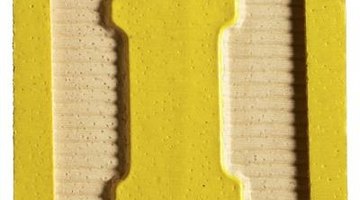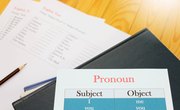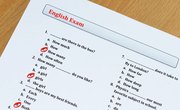Pronouns have an important place in the English language. A pronoun is a word used in place of a noun or nouns. Three kinds of pronouns are used: simple, compound and phrasal. Simple pronouns include: I, you, we, he she, it and they. Compound pronouns are those in which a pronoun is combined with another word, such as: itself, anybody or someone. Phrasal pronouns are less obvious and, as the term indicates, are phrases rather than single words, for example, one another. Pronouns, regardless of their form, make English more interesting and fluid as they reduce the instance of repeat words.
The Importance of Personal Pronouns
Personal pronouns indicate a singular or plural noun, which person the pronoun is, the gender and whether it is naming, possessive or objective. Often all this information is stated in a simple pronoun, such as his or yours. The pronoun "his" implies a singular, third person, possessive, male noun.
By adding the suffix "-self" or "-selves" to a personal pronoun, it becomes reflexive, such as himself. A reflexive pronoun can be used to intensify the noun it refers to; in this case it is called an intensive pronoun.
Relative Pronouns -- Adjectives in Hiding
Providing further information about a noun, a relative pronoun introduces an adjective clause. Andrew Pudewa, creator of the Excellence in Writing system, dubs this a "who/which clause." Example: Bryce, who loves the water, just learned to wake board. Example: The herd of elephants, which was led by the matriarch, tramped quietly through the savanna. Whose, whom, that or what can also be used as relative pronouns.
Indefinite Pronouns -- Could Be Anybody
Most pronouns refer to an antecedent, the named noun in a sentence. Indefinite pronouns are one exception to the rule. For example: Nobody cleaned the table. In this sentence nobody is a pronoun, but the noun it refers to is not stated.

Demonstrative Pronouns - This is Interesting!
A pronoun used to show another noun without naming it is demonstrative. Examples include this, that, these and those.
Related Articles
References
- "Writers Inc: A student Handbook for Writing and Learning"; Patrick Sebranek, et al; 2001
- "SRA Writing and Language Arts Handbook"; Jean Wallace, et al; 2003
- "Teaching Writing: Structure and Style Seminar and Practicum Workbook"; Excellence in Writing; 2001
Writer Bio
Crossover talent Debbie McClure has been writing marketing, training and press material for businesses since 2001. Investing in the next generation of authors, she has spent the last seven years teaching writing to elementary, middle school and high school students. McClure holds a Bachelor of Science in organizational leadership from Biola University.











